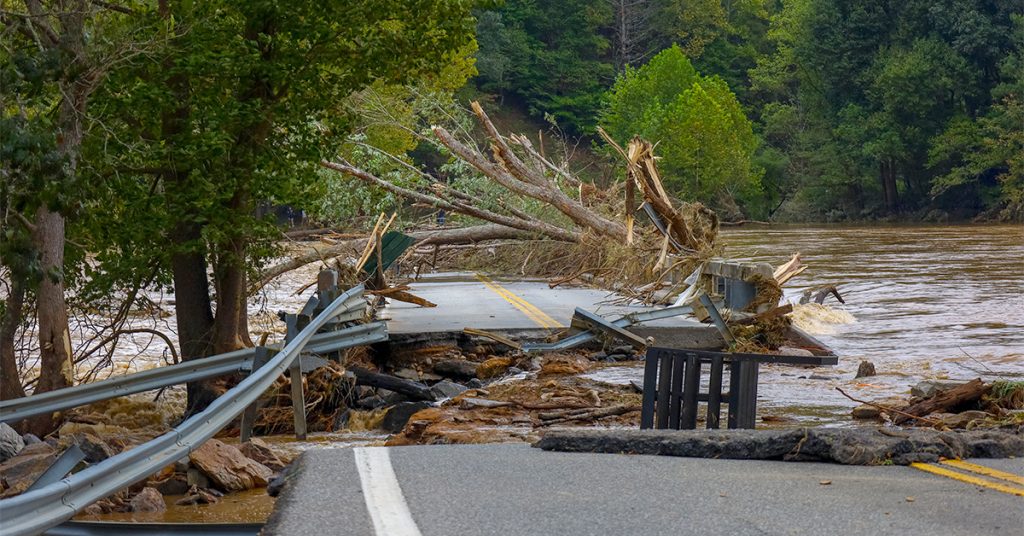When you think about business insurance, you probably picture coverage for fires, theft, or customer injuries. And you’d be right — those are common. But modern policies often cover more than most business owners realize.
In today’s complex, connected world, small businesses face a wide variety of risks — some of which are covered under standard policies, and others that aren’t unless you specifically add them. Knowing the difference can save you from devastating financial surprises and help you make smarter policy decisions as your company grows.
In this guide, we’ll explore five everyday risks that might already be covered by your insurance and three that usually aren’t. Let’s dive in.
Topics Covered
5 Everyday Business Risks You Might Already Be Covered For
1. A Customer or Employee Slips and Falls
A customer getting injured on your property is a classic general liability insurance claim and one of the most common risks covered by business insurance. If someone trips, slips, or falls in your store, office, or even your parking lot, your general liability policy typically covers:
- Medical costs
- Legal fees if the customer sues
- Settlements or judgments
Example: According to the National Safety Council, the average cost of a slip-and-fall workers’ compensation claim is over $48,000. For customers, the numbers can be even higher if there are long-term injuries or lawsuits.
2. An Employee Sues for Wrongful Termination
Employment Practices Liability Insurance (EPLI) isn’t always included in general liability, but if you carry it, it can cover:
- Wrongful termination
- Discrimination or harassment claims
- Legal defense and settlement costs
Why is this relevant for small and medium-sized businesses?
The average EPLI claim costs $160,000, and 41% of claims are filed against companies with fewer than 100 employees.
3. A Delivery Driver Hits Another Car
If your employee is driving a company vehicle and causes an accident while on the job, commercial auto insurance typically covers:
- Property damage
- Third-party injuries
- Legal expenses
But if your employee uses their own vehicle, you likely need non-owned auto liability coverage, a commonly missed gap. Non-owned auto liability coverage protects a business when employees use their personal vehicles for business purposes, and an accident occurs. This coverage extends liability protection beyond the company’s owned vehicles, covering situations where employees are driving their own cars, rented vehicles, or even borrowed cars for work-related tasks.
4. A Contractor You Hired Damages Property
If you subcontract IT help or renovation work and your vendor accidentally floods a client’s server room, guess what? If they’re uninsured or underinsured, your business could be liable.
Depending on the wording of your policy, general liability or umbrella insurance may step in. But what if they don’t?
Pro Tip: Always request a Certificate of Insurance (COI) from subcontractors or third-party vendors.
Not sure if you’re covered? Talk to a local insurance expert today.
5. Cybercriminal Steals Customer Info
Forty-three percent of cyberattacks target small businesses, according to Verizon’s 2023 Data Breach Investigations Report. Even worse? Sixty percent of them go out of business within six months.
Yikes! Cyber liability coverage can help pay for:
- Forensic investigations
- Customer notifications
- Credit monitoring
- Legal fees and fines
For small and medium-sized businesses handling customer data, this type of insurance is a must-have. Damages from cyber crime are on pace to top $13 trillion by 2028. You can’t afford to leave your business exposed to these kinds of risks.
3 Everyday Business Risks That Are Often Not Covered
While standard and optional policies offer robust protection, some risks frequently fall outside typical coverage unless you purchase special endorsements. Here’s what to watch for:
1. Damage to Your Own Property or Inventory if You Don’t Carry Commercial Property Insurance
In September 2024, a six-alarm fire tore through The Shops at Post Office Square in Lynnfield, MA, destroying five businesses (Dunkin’ Donuts, a martial arts academy, a gym, a market, and a cleaner) and causing substantial damage to a nearby bank.
Although no serious injuries were reported, all inventory, equipment, and business assets within those stores were completely wiped out. Local reports indicated that many of these small business owners were unprepared, as they lacked sufficient coverage. Governor Healey requested SBA disaster assistance to help these businesses rebuild.
Why It Matters: Standard general liability policies only protect against the damage you cause to others. When fire, flood, or other disasters strike your own property or inventory, without commercial property insurance, you may get zero compensation—making recovery nearly impossible.
In simple terms, commercial property insurance protects your things, while general liability insurance protects you from lawsuits and expenses if your business causes harm to others. Many business owners mistakenly believe that their general liability policy will cover damage to their own buildings, tools, or inventory — but that’s not the case.
Here’s a more detailed breakdown:
Commercial Property Insurance – This type of insurance protects your business’s physical assets from damage or loss due to covered perils. This includes your building (if you own or rent it), equipment, tools, inventory, furniture, and other business property.
Typically covered perils include fire, theft, wind, lightning, and vandalism. Certain natural disasters, like earthquakes and floods, are typically excluded, but may be added as endorsements.
Commercial property insurance is first-party coverage, meaning it compensates the business for damage to its own property. For example:
- A fire damages your office building and equipment.
- Inventory has been stolen from your retail store.
- A storm damages the roof of your warehouse.
General Liability Insurance – This type of insurance protects your business from claims that you caused bodily injury or property damage to a third party. It’s considered third-party coverage, meaning it covers claims brought against your business by someone else. For example:
- A customer slips and falls in your store and sustains an injury.
- An employee accidentally damages a client’s property while working at their location.
- Your business is sued for libel or slander in an advertisement.
2. Flood Damage from Natural Disasters

In July 2023, catastrophic flooding in Vermont severely damaged or destroyed over 800 local businesses—some never reopened. GoFundMe pages, local news archives, and even Vermont’s disaster databases show that standard commercial property coverage frequently excludes flood claims. Many operators lacked flood-specific policies and were forced into permanent closure.
Standard commercial property policies often exclude flood damage — including from sudden storms or overflowing rivers. If your business is located in a flood-prone area, you’ll likely need to purchase separate commercial flood insurance, often backed by the National Flood Insurance Program (NFIP) or a private provider.
According to FEMA, just 1 inch of water can cause over $25,000 in damage to a commercial property.
Pro Tip: Even if you’re not in a FEMA-designated flood zone, your lender or landlord might require flood coverage. And as climate patterns shift, “low risk” areas are becoming higher risk.
3. Revenue Loss from Utility Outages or Supply Chain Disruptions
In December 2024, a 27-hour power outage struck downtown Nantucket during the high-traffic “Christmas Stroll” event—an annual highlight for local merchants. This outage wasn’t due to a fire or storm directly damaging buildings, it was a utility system failure during a peak sales period.
Most standard business interruption policies exclude non-damage-related revenue loss, leaving these businesses uncoverable through traditional means. Consider these statistics:
- Over 1,400 utility customers experienced an outage lasting into the next day.
- The 67 businesses surveyed reported combined losses of approximately $1.5 million.
- Eateries alone lost around $170,000 from lost sales and tipped income.
Lost revenue adds up fast: Even a single day’s closure during a peak event can cost tens of thousands—or more—if you’re not properly insured. It’s important to recognize that standard policies often fall short, with coverage typically kicking in only after a physical property loss—not outages.
Pro tip: Businesses can add off-premises utility outage endorsements or contingent business interruption protection to offset these vulnerabilities.
Frequently Asked Questions (FAQ)
Q1: How do I know if my policy already includes coverage for these risks?
A: The best way is to review your current insurance declarations page and speak with your agent. Many coverages like EPLI, cyber liability, or non-owned auto liability are optional add-ons and not automatically included in standard general liability or property policies. A quick policy review can reveal what’s there and what’s missing.
Q2: Can I bundle these coverages into one policy?
A: Yes! Many small business owners benefit from a Business Owner’s Policy (BOP), which combines general liability and commercial property insurance. You can often add other protections like cyber, business interruption, and equipment breakdown as riders or endorsements to a BOP, simplifying your coverage and billing.
Q3: What’s the difference between general liability and umbrella insurance?
A: General liability covers specific types of claims typically up to $1 million per occurrence. Umbrella insurance adds extra protection once your other policies are maxed out. For example, if a lawsuit costs $1.5 million and your general liability only covers $1 million, your umbrella policy could cover the remaining $500,000.
Q4: Is cyber liability insurance really necessary for small businesses?
A: Absolutely. According to Verizon’s 2023 Data Breach Investigations Report, 43% of cyberattacks target small businesses. Even a minor breach like a hacked email or stolen laptop can lead to significant damages.
Q5: I run a small, home-based business. Do I need a business insurance policy too?
A: Yes. Home-based business owners are often underinsured because they assume their homeowner’s policy covers business risks, but it usually doesn’t. If clients visit your home office, you ship products, or you handle customer data, you likely need additional protection through a home-based business rider or commercial policy.
Q6: What should I do if I suspect a coverage gap?
A: Call your insurance agent and schedule a policy review. Bring a list of business changes (e.g., new hires, new vehicles, new locations, more customer data) and ask whether your current policy still fits your needs.
Final Thoughts
As a business owner, you need to know what risks you’re protected from, and which ones could blindside you. Let’s recap:
What’s Likely Covered:
- Customer injuries
- Employee lawsuits (if EPLI is included)
- Commercial auto claims
- Subcontractor-caused damage
- Cyberattacks (with a rider)
What’s Often Not Covered:
- Damage to your own property
- Floods and natural disasters
- Supply chain breakdowns or utility outages
If it’s been more than a year since you reviewed your coverage, now’s a great time to do so, especially considering the current uncertainty in the economic environment. As your business evolves and hires more employees, adds locations, or handles more data, your insurance should evolve too.
Need to learn more about business insurance?
Our agents are ready to help, so contact us to learn how we can customize your insurance policies to meet your needs.
*Disclaimer: We offer content for informational purposes; Co-operative Insurance Companies may not provide all the services or products listed here. Please get in touch with your local agent to learn how we can help with your insurance needs.
Sources
Aegis Insurance & Financial Services. What is Off-Premises Utility Coverage, and Does Your Business Need It? https://www.aegisifs.com/blog/what-premises-utility-coverage-and-does-your-business-need-it
Boston.com. Business losses continue to mount after blackout hits Nantucket Christmas Stroll. https://www.boston.com/news/business/2024/12/18/business-losses-continue-to-mount-after-blackout-hits-nantucket-christmas-stroll/
Crowdstrike. Cyberattacks on Small Businesses: Current Stats and How to Prevent Them. https://www.crowdstrike.com/en-us/cybersecurity-101/small-business/cyber-attacks-on-smbs/
Fox59. Vermont’s flood-wracked capital city ponders a rebuild with one eye on climate change. https://fox59.com/news/national-world/ap-us-news/ap-vermonts-flood-wracked-capital-city-ponders-a-rebuild-with-one-eye-on-climate-change/
Hiscox. Hiscox study identifies states with highest risk of employee lawsuits. https://www.hiscox.com/articles/employee-theft-cost-us-businesses-average-113-million-losses-according-2017-hiscox
National Safety Council. Workers’ Compensation Costs. https://injuryfacts.nsc.org/work/costs/workers-compensation-costs/
Mass.gov. Flood Assistance and Insurance Information. https://www.mass.gov/info-details/flood-assistance-and-insurance-information
Utica National Insurance Group. Small Business Insights. https://risk.uticanational.com/articles/small-business-insights
WCVB5. Several businesses destroyed after fire rips through Lynnfield, Mass. strip mall.https://www.wcvb.com/article/firefighters-battle-lynnfield-strip-mall-blaze/62146169

